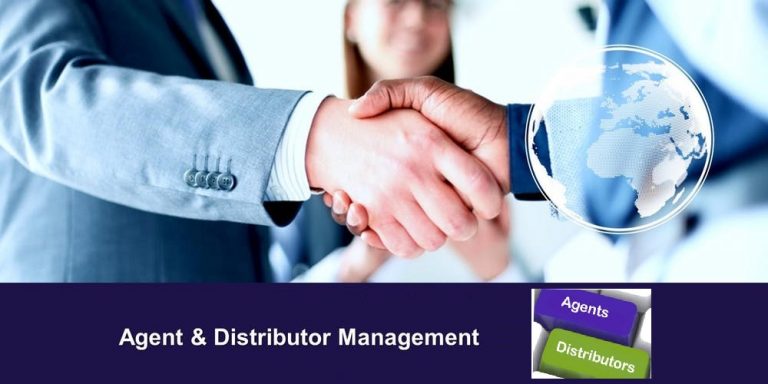
Agent and Distributor - Differences and Preference for Non-Exclusive Distribution Agreements
This defines why scientific instrument company prefers non-exclusive distribution relationships and avoids agent relationships.
- Introduction
- Differences
- Agents
- Distributors
- Preference for Distribution Relationships
- Scientific Instrument Company's Strong Preference for Non-Exclusiveness
Introduction
In particular in countries where scientific instrument company has no market organization, company usually uses third parties to sell its products. company prefers non-exclusive distribution relationships and avoids agent relationships for different reasons. The difference between agents and distributors are explained below. It should be aware that the structure of the relationship is key for determining the nature of the relationship and not how a respective written agreement names or describes the relationship.
There may be slight differences in the interpretation of what is an agent, distributor, importer between certain legislations but in general the following can be applied:
Differences
There is a fundamental legal difference between agents and distributors. An agent negotiates on company’s behalf and may be entitled to create a legal relationship between company and the customer. A distributor buys goods on its own account from us and resells them to customers. It is the distributor which has the sale contract with the customer not company – the distributor takes on the financial risk of not being able to sell the product. An agent acting for a company that sells products will market, present and represent the product manufacturer in the marketplace. A distributor buys the products from the manufacturer (company), and re-sells the product to the end user. The relationship between a distributor and the manufacturer is of a principal to principal and the manufacturer is not responsible for and / or bound by the acts of the distributor while in an agency relationship the company being the prinicipal is primarily responsible for the acts of the agent.
Agents
Agents seek out potential customers and may be used to facilitate and promote company’s products in their respective markets. Agents may be paid a salary, a retainer, a commission or a combination of all three but unlike importers/distributors, they do not take legal possession of any goods. An agent, is a person who has authority, expressly or implied, to create legal relationships between another, known as a "principal" (in this case scientific instrument company) and third parties.
The principal typically remains directly liable for the actions of its agent. In practical terms, this means company can be held responsible for the actions of its agents. The use of agents who made inappropriate payments to third parties to obtain business has caused company significant damage.
Distributors
Distributors solely import goods for resale to other companies in the distribution chain and take legal possession of goods. Distributors take legal possession of goods and pay company for them. They are usually obliged under the terms of their agreement with company to carry inventory/demo goods and to provide after-sales service where necessary. Unlike agents, distributors buy the product directly from company and distribute it in the market. While an agent can be called the company’s representative, a distributor cannot be called so, because the distributor first buys the product and then resells it.
Preference for Distribution Relationships
Company strongly prefers non-exclusive distributors wherever possible. The main reasons are:
- Lower risk concerning compliance with certain legal obligations like anti-corruption laws
- Lower financial risks
- Fewer own resources necessary, and less relationship management necessary compared to agency relationships
- In contrast to agency relationships, in most jurisdiction there is no compensation due in case of termination
- More flexibility
Scientific Instrument Company's Strong Preference for Non-Exclusiveness
While company do not strictly forbid exclusive distributor (or agency) agreements, company do strongly prefer to avoid them. Company have good reasons for this strong preference, mainly our experience that with the passage of time, even the most solid performers can deteriorate. Having exclusive arrangements virtually eliminates our flexibility to respond, and company have paid high sums to terminate non-performing exclusive partners. The main reasons are therefore:
- Lower financial risks; in particular in contrast to exclusive distribution relationships, in many jurisdictions where a compensation is due in case of termination of distribution agreements, this does usually not apply to the termination of non-exclusive distribution relationships
- More flexibility (in appointing other distributors and in selling ourselves)
If it seems that the distributor does only want to enter into a distribution agreement if it is exclusive, one alternative to assigning an exclusive territory is to draft the distribution agreement in such a way that the distributor is non-exclusive but to have only one distributor. In special cases where the distributor wants to force company to an exclusive distribution agreement, a verbal understanding could suggest that if agreement’s objectives were met, no additional distributor would be added to the nonexclusive territory. Such an arrangement provides encouragement for the distributor to perform without restricting options of company. Be aware, however, that in some countries the failure to appoint a second distributor or agent in the territory for an extended period of time may be deemed, by operation of law, a de facto exclusive arrangement. Therefore, whenever entering a new market, you should consult the legal department for guidance on the risks in that country.
Channel Manager should have an overview of any exclusive agreements in the territory.
For these reasons, before appointing or renewing an exclusive distributor arrangement, SMART authorization agreement should be consider carefully before approval.
If we were to decide to have an exclusive distribution agreement under special circumstances in a given territory, we should at least ensure that we are ourselves permitted to directly or indirectly sell into the territory as long as the distributor’s profit and brand not be effected.
